
 Welcome to “Up Close & Personal.” For every interview I will be introducing a literary personality discussing his views and insights, as well as upcoming literary events around the world.
Welcome to “Up Close & Personal.” For every interview I will be introducing a literary personality discussing his views and insights, as well as upcoming literary events around the world.Today’s interview is with Journalist Nicholas Kulish. He’s the author of soon to be released novel “Last One In” from Ecco in July 1st 2007. Mr. Kulish has been a member of the editorial board of The New York Times since 2005. His work has appeared in the Wall Street Journal, the Washington Post, the Washington Monthly, ESPN -- the Magazine and other notable publications.
At the onset of the Iraq war in 2003, Mr. Kulish was a reporter in the Washington bureau of the Wall Street Journal assigned to a Marine attack-helicopter squadron. The Journal also had him cover the US economy and antitrust issues. That same year he was awarded a Fulbright Fellowship in creative writing in Berlin.
EI: Would you share some early insight into who you were as a teenager? What were you like? Please tell us more about Nicholas Kulish -- the man behind the journalist & author.
NK: As a teenager I was involved in a lot of different creative enterprises. I took photography classes, played in bands, and entered drawing competitions. In junior high I wrote and drew my own comic books and tried to write a science-fiction novel. It didn’t go so well. I remember getting to about page 50 before I solved my problems by ending it somewhat abruptly.
EI: Do you express your inner self in your writing or do the personas you create exist only in your imagination?
NK: The characters are imaginary. Every last one has a little of me in them, but they are not stand-ins for me. I could see myself writing narrative non-fiction,
but the novels are pure inventions.
EI: When you look back on your enormously successful career as a journalist, is there anything you would've done differently? If so, what and why? If not, how do you manage to move forward without regrets?
NK: When I quit the Wall Street Journal after the Iraq invasion, a lot of people said I was making a huge mistake, taking a step backwards just when I could have moved ahead. I knew I wanted to write fiction so it wasn't that hard a decision. The pressure came after that, when I would have a bad day at the computer thinking, “I quit my job for this?” That's when the regret can start to creep in. The only way to fight it is to be disciplined and keep writing because
then it’s worth it.
EI: What would you like to say to our young writers who are reading this interview and wondering if they can keep creating, if they are good enough, if their voices and visions matter enough to share?
NK: Most of my friends from college who stayed committed to writing and kept working at it succeeded in becoming writers for a living, whether that's at magazines, in Hollywood, or, for a couple of us, writing novels. But that takes dedication. A lot of people like the idea of being a writer more than the hard, lonely work of getting the ideas down on paper. If you love the actual act of creation, can find a way to stick with it, and remain open to constructive
criticism, you'll be a writer.
EI: Let’s talk about your reaction in Iraq? When did you and the media first start to get a sense of something was going on? Were you being kept informed on a daily basis, on what was happening?
NK: During the initial stages of the war, I often told my bosses back in Washington that they had a better idea of what was going on than I did. I only really understood what the group of Marine helicopter pilots I was living alongside were doing. The big picture required a lot of different viewpoints. I remember reading "Cobra II" (a military history of the invasion) when it came out and for the first time realizing what was going on at certain moments.
EI: When you were in Baghdad where you able to travel outside the “green zone?” Do you think American’s are any safer because of the Iraq war?
NK: I wasn't in Baghdad during my time there. I was in Iraq but only during the initial phase of the invasion, March and April of 2003. In those days there was no Green Zone. I've read that the beginning was actually the safest time, before the proliferation of roadside bombs and suicide bombers. I've seen no evidence that the war has made us safer. There's the argument among supporters of the war that it acts as a magnet for terrorists, but on the other hand there's polling data showing that it inflames anti-American sentiment across the Muslim world and beyond. At the end of the day, I'm not an expert on terrorism.
EI: Would you comment on the difference between what you saw the first time you went to Baghdad and the last time? Do you have any moments of doubt that there’s something wrong with the perception of American’s in overseas?
NK: I've never been back. At first I looked for assignments that would get me there again. Then a former colleague and friend of mine stringing for the Christian Science Monitor, Jill Carroll, was kidnapped and held hostage. That really gave me pause.I lived in Berlin in 1995 and many of the other students I met there thought it was so cool that I was an American. They were excited to meet me and wanted to know about what it was like in the United States. I went back in 2003 and everyone lectured me about how bad our country had become. Eventually I felt as though every party or dinner out ended up with me exhausted from defending my country.
EI: Mr. Kulish, you are well known in the Journalistic community as currently an editorial writer at The New York Times. Your work has appeared in various periodicals such as The Washington Post, ESPN, the Times and the Journal. You where also on a Fulbright writing grant in Berlin. Now... you have a latest novel “LAST ONE IN” which is coming out this summer. Do you ever feel pressure or insecure, or are you able to separate all that from your own creative process?
NK: I feel pressure like anyone else. When I get particularly stressed out I try to break things down into really small pieces that I can handle. Write just one scene. Read a chapter of a book for research. As long as I feel like I'm making progress, even inching forward, I usually feel okay.
EI: Let’s shift gears and talk about ˜Jimmy Stephens” the protagonist in your novel. How much of Jimmy’s planned out in your head? How do you know where you will go next with his character?
NK: Jimmy clicked in my head as a character better than any I've ever written. Something about this cocky, jocular, but insecure guy made sense to me. He feels like a fraud, which I think each of us does sometimes, whether giving an oral report in high school or a presentation at the office.
EI: What was your biggest challenge and obstacle while writing and creating Jimmy? Did you work him out in advance, or did he evolve as you wrote the story?
NK: As I mentioned, Jimmy was relatively easy to write. Incontrast, the character of the young Marine, Ramos, only began to come to life after months of rewriting. In many ways I'm now prouder of him than Jimmy, because I feel he's a little subtler at times and his character took so much work. I'm a huge believer in editing and rewriting.
EI: Many writers describe themselves as "character" or "plot" writers. Which one are you? And what do you find to be the hardest part of writing?
NK: Maybe I’m more of a plot writer. I think creating believable characters is the hardest thing about writing fiction. If you don't invest enough in them, they're flat. If you layer and layer them with arbitrary characteristics they can feel fake, overdrawn. It's a delicate line.
EI: Who are some of the authors you keep returning to as a reader because of their ability to create vivid, three-dimensional characters?
NK: The two books I sit down and re-read the most often are "Catch-22" by Joseph Heller and "Moby Dick" by Herman Melville. Graham Greene is a writer whose characters fascinate me. Among contemporary writers I'm a big fan of Michael Chabon and Elmore Leonard, who are very different but exceptional in their own ways.
EI: What would you tell those authors considering applying to an M.F.A. program? In your opinion how important is it for a writer to have a writing degree?
NK: I think that what is important is for writers to have time to write. A good friend of mine works in National Park Service fire towers in New Mexico to isolate himself so that he gets more reading and writing done. A certificate or diploma in and of itself isn't going to make you a better writer, but two years of uninterrupted writing with good mentors will. Like any kind of school, it's what you put into it. If you aren't ready to work hard and produce a lot, you're probably better off saving your money.
EI: What's up next? Is there another book in the works? What can you share with us?
NK: There is another novel on the way, but my work at the New York Times has slowed it down a lot. I'm starting a new job as the Berlin correspondent for the Times. On the one hand, I think that's excellent for an incomplete novel set in Berlin. On the other, it's going to take tremendous discipline to handle a demanding job and find time for the book.
EI: Mr. Kulish, thank you for contributing to my blog. It has been a pleasure for me to get to know you, and your work a little better. Would you like to end your interview with a writing tip or advice for young aspiring writers?
NK: Thanks a lot for having me. It's been fun for me too. My advice is to write for yourself rather than what you think editors will publish or readers will buy. Very few people make a living by writing books. That's no reason to despair. It's a reason to do what you love without trying to change to suit other people's taste.
To learn more about Nicholas Kulish, please visit him at:
http://www.harpercollins.com/books/9780061189395/Last_One_In/index.aspx
www.myspace.com/nicholaskulish

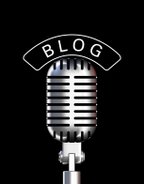





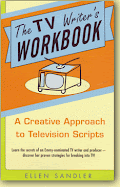



.png)



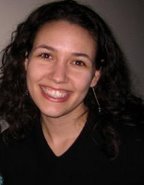
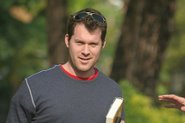

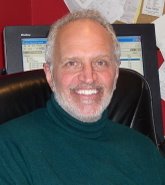
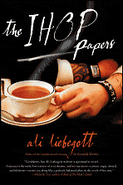
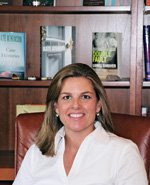
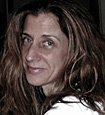
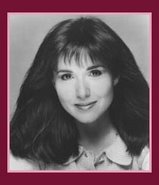
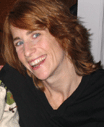


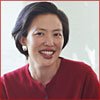


No comments:
Post a Comment